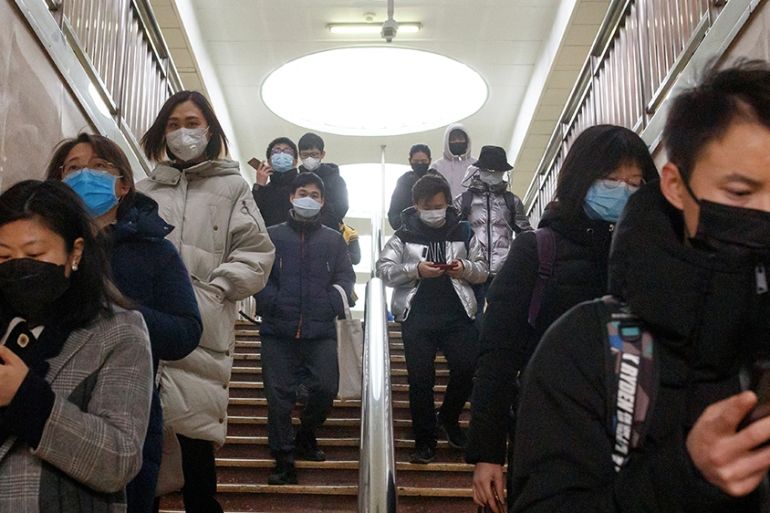China’s firms still short on supplies from virus shutdown
Although people are slowly returning to work, Chinese firms are now struggling with global disruptions, a survey says.

Close to a third of all companies in China’s south are suffering from supply chain disruptions as the global spread of the coronavirus outbreak takes its toll on the significant manufacturing hub, according to a survey.
The American Chamber of Commerce South China spoke to 237 companies and found that 32 percent were facing shortages of components, supplies or materials, while all of the companies said supply chain disruptions had affected them in some way.
Keep reading
list of 3 itemsCan China’s carmakers avoid a virus-driven crash?
Outrage as Trump calls coronavirus ‘Chinese Virus’
Nearly half of those surveyed are multinational companies, while 76 percent of the total are in manufacturing. The answers were collected between March 9 and March 14 and published on Wednesday.
Of the 32 percent of companies that said they were facing shortages, 15 percent had already run out of supplies, 37 percent expect to run out within 30 days, and 43 percent expect to run out within 90 days, the survey said.
The survey also found that while the majority of the shortages resulted from supply issues within mainland China, 18 percent of the shortages were coming from disruptions elsewhere in the world.
While’s China’s virus outbreak appears to be past its peak and firms are slowly returning to work, business upheavals caused by the virus are now being seen globally as the pandemic intensifies.
“One must keep in mind that a great deal of goods are air shipped via commercial flights and the cancellation of thousands of flights will with no doubt lead to shortage of transportation capacity, higher shipping prices and even further delays in shipments between various nations,” said Harley Seyedin, the chamber’s president.
Most analysts now expect China’s economy to contract in the first quarter due to the twin supply and demand shocks from the virus and tough measures to contain it. Projections have dropped sharply after dismal activity data for the January and February period was released on Monday.